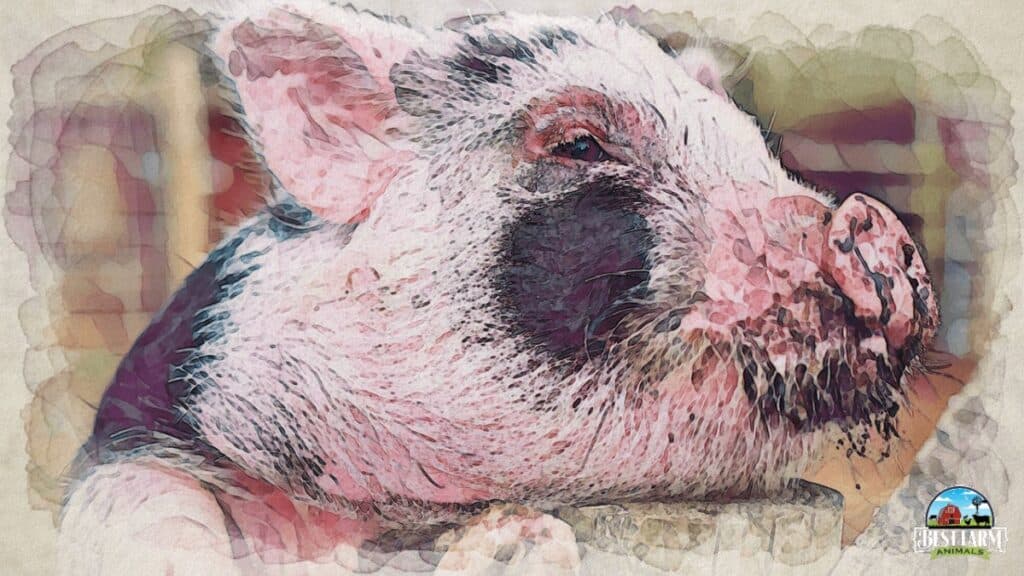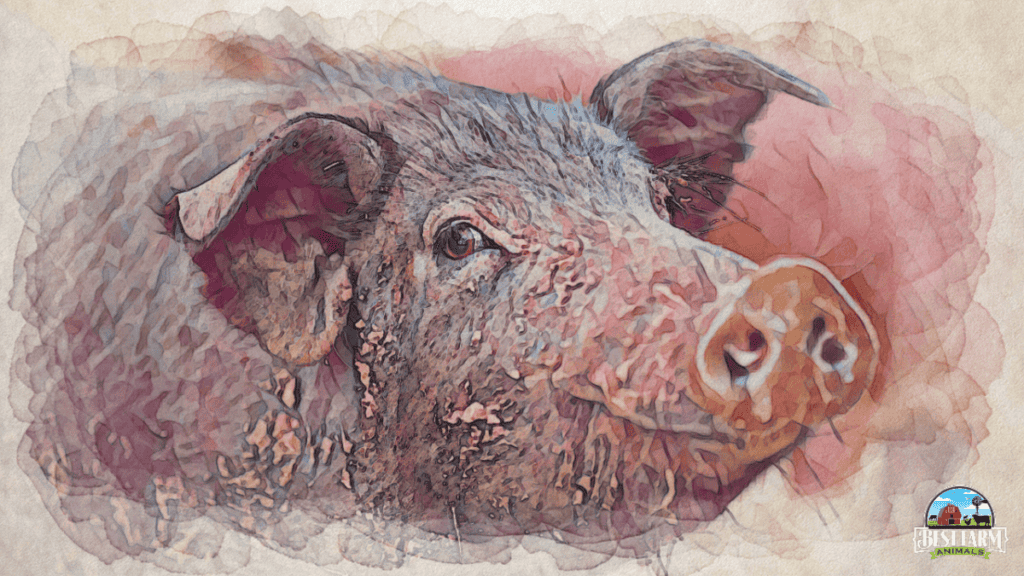If your pig has started vomiting, it’s crucial to keep a close eye on them and find the cause of the vomiting. Some reasons for vomiting in pigs are not as critical as others, but your pig may need veterinary attention if they have liver disease or are experiencing extreme pain.
It’s a good idea to isolate sick pigs as soon as sickness symptoms appear. This can help prevent the spread of illness and help you to identify what symptoms are unique to that pig. (Sometimes, multiple symptoms appear that may come from various pigs in the pen).
Then, identify if you’ve changed your pig’s diet, introduced any new foods, or if your pig has gotten into and eaten something, it’s not used to eating. New foods can cause vomiting. Plus, if your pig eats too quickly, it may vomit without being sick. Next, review your records for the last deworming because parasites can cause pigs to vomit.
Observe your pig for signs of physical discomfort, pain, or cramping. Lastly, monitor your pig’s stool to make sure it’s passing stool Check to see if it’s runny or hard. This will help you better identify what’s wrong.
When your pig is vomiting, you may rule out some potential causes with a checklist, so you know what you are dealing with:
- Has your pig eaten something out of the ordinary?
- Has your pig eaten too quickly?
- When was the last deworming?
- Is your pig showing signs of physical pain and cramping?
- Does your pig have normal stool?

Not Eating and Vomiting in Pigs
A pig not eating and vomiting could signal a severe illness or toxicity from something ingested in the environment. A common cause of this type of behavior is an infection, such as salmonellosis or swine dysentery. Other causes of vomiting that come with not eating are intestinal parasites, such as roundworms and whipworms.
One of my pigs refused to eat and vomited due to what my vet called gastric ulcers. A pig with gastric ulcers looks pale and may vomit more than three times a day. This is a dangerous condition that needs immediate medical attention.
It’s also possible that the pig ate something it couldn’t digest, leading to intestinal blockage. Ingesting mold may also cause a pig to lose its appetite and vomit. The pig may also be suffering from a dietary allergy or sensitivity. Contact your veterinarian immediately if your pig is not eating and vomiting.
Steps to Take if Your Pig Vomits Excessively:
Follow these steps when your pig presents with excessive vomiting:
Don’t give your pig food or water for at least 6 hours. If your pig is under 10 pounds, you can rub sugar water (1 teaspoon sugar to 1 cup of warm water) on their gums every hour to prevent their blood sugar levels from dropping.
If they have not vomited again after 6 hours, offer a small amount of water (not more than ¼ cup). Should your pig refuse to drink, they may still be nauseous, and you’d better start calling the vet. However, if your pig drinks the water and doesn’t vomit, offer ½ cup every hour for the next 6 hours. With no further vomiting, they can drink water as usual. Continue monitoring them for the next 24 hours, but withhold pelleted feed.
If your pig has not vomited for at least 1 hour after drinking water, you can offer a small soft meal of soaked pellets. Thereafter, wait 1 hour, and if your pig starts to vomit again, call the vet urgently. If there is no further vomiting, continue with the soft food.
If they continue vomiting past 6 hours, call your vet. Dehydration is a severe risk and can contribute to an early death.
My Most Used Pig Supplies
This list contains affiliate products. Affiliate products do not cost more but helps to support BestFarmAnimals and our goal to provide farm animal owners with accurate and helpful information.
Purina Pig Chow will last well (or Mazuri is popular, but I haven’t tried it), and the stainless steel non-skid bowls that will help keep the mess down.
A pig blanket to keep her warm. This one also has bright colors and helps to provide rooting without the destruction.
Pig Harness for walking and handling your pig. There are a lot to choose from, but this one is pretty easy to use. If you want one that has a separate leash, this looks like a good one.
A large crate for keeping her safe in your house at night and when you leave the house. This is essential. You’ll also want a litterbox, and I like mine with a lid for nighttime. Pine shavings are best, and you may be able to find them in larger quantities locally.
When you have accidents, Odoban will help eliminate odors. When you are potty training, these floor pads work great for keeping your house clean while training her to go in certain places.
You’ll also want an outdoor house to keep her warm when she gets outside time, an essential part of her development.
Dewormer- Ivermectin is the primary dewormer I use, although I do rotate with a non-ivermect ingredient once so that the worms don’t get immune to it.

